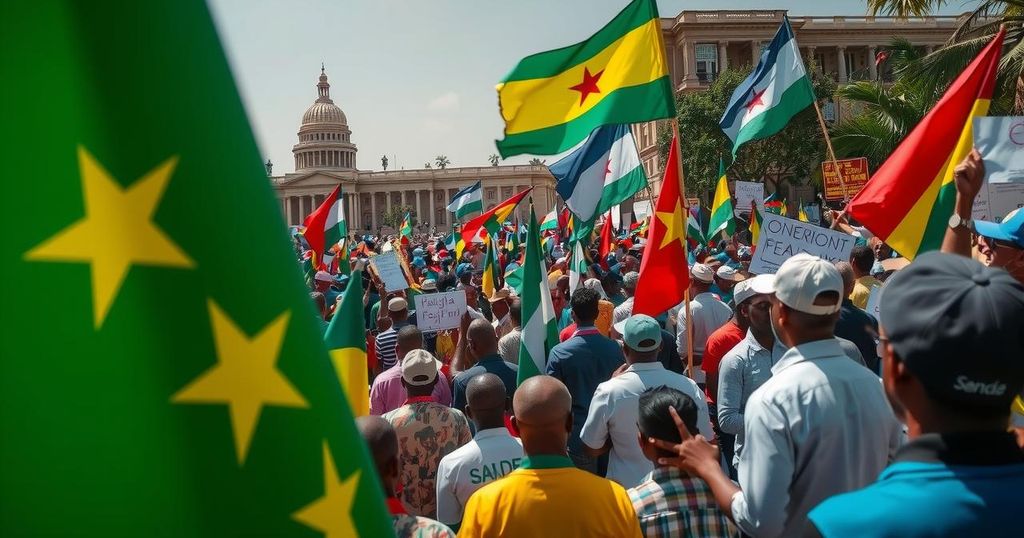Senegal Struggles Amid Tensions on Eve of Crucial Legislative Elections
Senegal enters the final day of a contentious electoral campaign ahead of key legislative elections. Voters will select 165 lawmakers, with President Faye’s party lacking a majority. Tensions have grown amid clashes and violence, raising concerns about the electoral process and the stability of Senegal’s democracy.
On the eve of crucial legislative elections in Senegal, political tensions have escalated with an intense campaign wrapping up on Friday. Voters will elect 165 representatives to the Assembly, where President Bassirou Diomaye Faye’s party currently lacks a majority. Faye, elected in March on an anti-establishment platform, cites this lack of majority as a barrier to implementing reforms aimed at curbing corruption and increasing public benefits from natural resources. Following his decision to dissolve the opposition-led parliament in September for a snap election, Faye’s party faces opposition from the Takku Wallu platform led by former President Macky Sall. Recent weeks have seen sporadic violence, including confrontations between party supporters and the burning of an opposition party headquarters in Dakar. Prime Minister Ousmane Sonko, a significant opposition figure who supported Faye’s rise to power, condemned these assaults and expressed a willingness to retaliate. However, he later called for peace among his supporters. Notably, Sonko has himself faced violence; his vehicle was attacked during a campaign event, leading to injuries among his supporters. This political strife unfolds as Senegal strives to maintain its reputation as a stable democracy in a region often afflicted by coups and political unrest. The recent presidential election in March raised questions about the nation’s democratic integrity with protests erupting over the ambitions of former President Sall to secure a third term, despite constitutional limitations. Both Faye and Sonko were released from prison shortly before the vote due to a political amnesty granted by Sall, which followed protests that left many dead and imprisoned.
Senegal, known for its relatively stable political environment in West Africa, faces challenges as it prepares for important legislative elections. The political landscape has been tense, particularly following the March presidential elections, where issues of governance and reform came to the forefront. President Faye’s desire to implement significant changes is hindered by a lack of support in parliament, while the opposition has gained traction. This electoral period is characterized by violence and confrontation, showcasing deep divisions among political factions.
As Senegal approaches the legislative elections, the tensions from the recent campaign underline the challenges facing President Faye in executing his reform agenda. The opposition, galvanized by events in recent months, poses a significant threat to Faye’s ambitions. The outcome of these elections will be critical not only for Faye’s administration but also for the perception of democracy in Senegal, which is navigating a complex political landscape in a region marked by instability.
Original Source: apnews.com




Post Comment